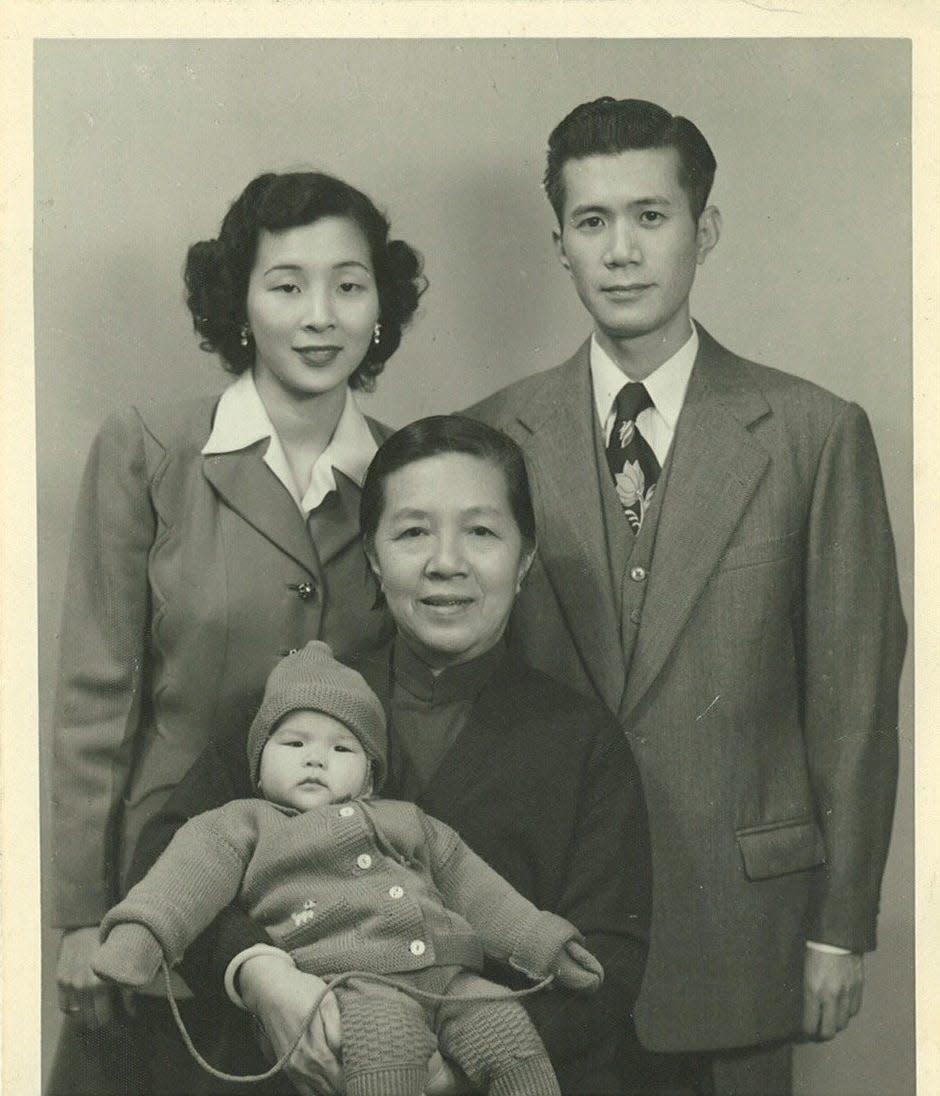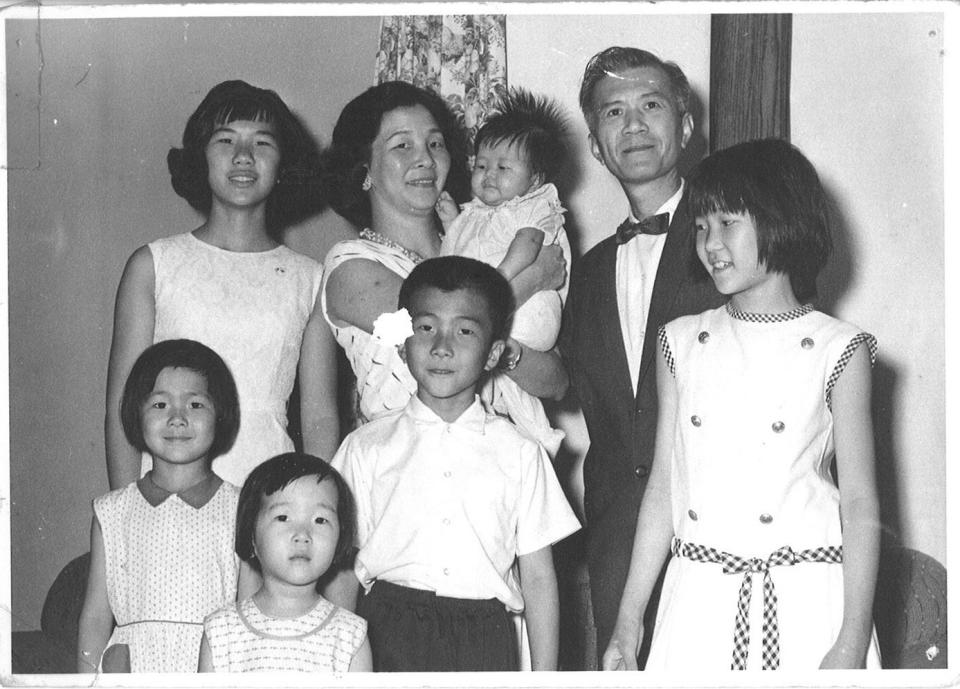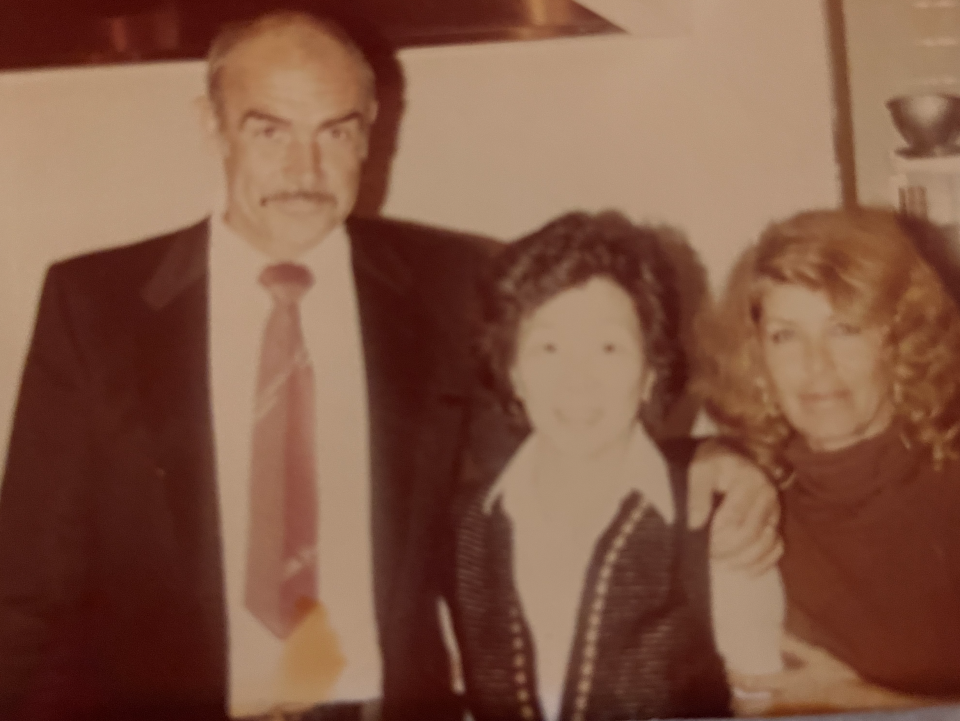How cooking saved my mom's mental health and fed her Chinese food restaurant empire

In many Chinese American families and especially mine, love isn’t shown through physical gestures like hugging, touching or saying I love you. It’s shown through a special dish made just for you by your mom, like a whole steamed fish in black bean sauce when you got all A’s (I got pork chow mein when I came home with all B’s).
I can’t blame my mother for her stoicism considering the cards she had been dealt. But Leeann Chin eventually learned how to play those cards and win back her life, from seamstress to a pioneer restaurateur in Minnesota's Twin Cities.
Growing up in Guangzhou, China, she was a rebellious girl and the communists saw her fiery nature. They recruited her to lead a Mao student group at school. Her parents decided to put a stop to it. They shipped her off to Hong Kong to marry my father and escape the Cultural Revolution.
My mother met my father the day they were married. She was 18.
Monster-in-law, abusive alcoholic husband
My father had depression and turned to alcohol. His mother was a widow and also an alcoholic. They would get drunk every night and demand my mother cook their favorite meals. With every dish came constant criticism: “This dish too salty! Bring us more Johnny Walker!”

Her life became a routine of cleaning, cooking, getting berated, getting pregnant. Lather. Rinse. Repeat.
AAPI Heritage Month: Why I, a former refugee from Laos, started a museum of international diaspora in ... Idaho
After my parents immigrated to Minnesota in 1956, my mother coped with all sorts of new challenges like freezing winters, learning to speak English, Velveeta cheese, Wonder bread, caring for six children, her monster-in-law and an abusive alcoholic husband.
To escape, my mother turned to cooking, constantly perfecting her art, her fingers making intricate dumpling pleats at a record pace as if her millionth "shu mei" would win her a get-out-of-jail card.
Inheriting depression and anxiety
My sister Patty inherited my father’s depression and anxiety. I remember my oldest sister, Linda, being just like a hippie version of Marcia Brady and Patty was just like Jan, introverted and shy – withdrawn and disappearing into her room for hours. Linda and Patty fought constantly, and it felt like World War III in our house.
Stigma even greater in faith communities: I struggle with mental health – and I love Jesus
Patty moved out at the age of 19. I remember my sister Jeanie and I taking the bus to visit her when I was 7. Patty had a groovy apartment with a waterbed; "Brown Sugar" by The Rolling Stones was playing on her transistor radio. She let us eat Ding Dongs and we got to stay up until midnight.
Mom picked us up the next day, shaking her head at the piles of garbage, dishes and clothes in Patty’s living room. She just said “let’s go” without saying a word to Patty, and we left.
A few weeks later, Patty took a turn for the worse, and my parents checked her into a mental health facility for severe depression. Unbeknownst to them, she had asked a friend to sneak in pain meds she was prescribed from a fall off a horse several months earlier.

One day in 1972, I remember hearing my parents speak in hushed tones in their bedroom (we couldn’t understand Chinese so I’m not sure why they were whispering). Mom emerged with her eyes red from crying. She told us that Patty had died by suicide at the facility from an overdose.
In dark of the night at bedtime, I clutched Jeanie’s hand and asked her what suicide meant. Jeanie whispered, “It means she killed herself, Katie.” This word – suicide – floated in mind for a long time until it finally gave way to sleep.
In the morning, it felt like our home was cloaked in a dark cloud of shame. After the funeral, Dad took Patty’s high school photo off our dining room wall. We never spoke again of Patty; it was as if she never existed.
Talk about suicidal thoughts, depression: USA TODAY editor shares advice after her mother's death by suicide
It's funny because I didn’t shed a tear when it happened (didn’t know how to grieve this unspeakable thing, couldn’t know how) but now whenever I think about it, I start to cry.

The day after the funeral, I woke up to my mother motioning me to the kitchen table to dig into a huge mound of dumpling filling. I folded the delicate wrapper around the savory filling while our house filled with the aroma of "har gow" and I, too, fell into my mother’s trance of efficiency. Fold. Pleat. Repeat.
Taking the bus to serve catering clients
The act of cooking and nourishing others gave her a sense of purpose, and although she couldn’t save her daughter, she was unconsciously saving herself. When she wasn’t pinning hems for her sewing clients (making 50 cents an hour mind you), she was in the kitchen testing new recipes.
One day she threw a luncheon for some sewing clients, and they encouraged her to start catering. So she did, little by little, from our tiny basement in Minneapolis. She took the bus to her gigs until she could afford a car.
Mom became extremely popular as a caterer and caught the eye of a local socialite who wanted to open a restaurant with her. This socialite happened to be friends with then-Minnesota Twins owner Carl Pohlad, and he happened to be friends with Sean Connery. The "James Bond" icon came to visit his friend Robert Redford, who was directing the film “Ordinary People.” My mother catered the welcome party in 1979, and Sean Connery fell in love with my mother’s food and invested in her first restaurant.

Against all odds, that first restaurant bearing her name, Leeann Chin Chinese Cuisine, led to a restaurant empire that my mother grew into a chain with more than 50 locations in the Twin Cities, Detroit and Kansas City areas. She never attended high school.
I don’t know that my mother ever recovered from my sister’s premature death; I’m not sure any mother can. What I do know is that she translated adversity into magic and creativity in the kitchen.

My mother passed away in 2010. Everything I know about life and cooking I learned in the kitchen from her. She taught me many life lessons, especially about the power of resilience.
I have come to realize, however, that resilience alone is often not enough and that the act of preserving one’s mental health is not a luxury. It is a right – a right I finally learned to exercise by seeking therapy as an adult, though it's challenging to ask for help as a woman of Asian American and Pacific Islander heritage.
Historic puppeteer: 'Sesame Street' Muppet makes AAPI communities 'feel finally seen and validated'
And now as a mother to 13-year-olds Dylan and Becca, I watch in awe as our happy-go-lucky beings giggle in unison at their bad jokes and bicker harmlessly. I pray the dark lineage of depression does not seep into their veins as it has in mine from time to time. They are pure light emerging from my family’s dark past. Chapters yet to unfold and the hope for a future no longer cloaked in shame.
If you or someone you know may be struggling with suicidal thoughts, you can call the U.S. National Suicide Prevention Lifeline at 800-273-TALK (8255) any time day or night. Crisis Text Line also provides free, 24/7, confidential support via text message to people in crisis when they dial 741741.
Katie Chin is a Los Angeles-based chef, award-winning cookbook author, culinary ambassador to the National Pediatric Cancer Foundation and co-chair of Los Angeles Mayor Garcetti's AAPI LA initiative. Her fifth book, "Katie Chin's Global Family Cookbook," was published in June. Katie's one woman show, "Holy Shitake: A Wok Star is Born," is in development with Theater Mu in St. Paul, Minnesota. Follow her on Instagram: @chefkatiechin
You can read diverse opinions from our Board of Contributors and other writers on the Opinion front page, on Twitter @usatodayopinion and in our daily Opinion newsletter. To respond to a column, submit a comment to letters@usatoday.com.
This article originally appeared on USA TODAY: Sean Connery loving Mom's Chinese food helped save her mental health

